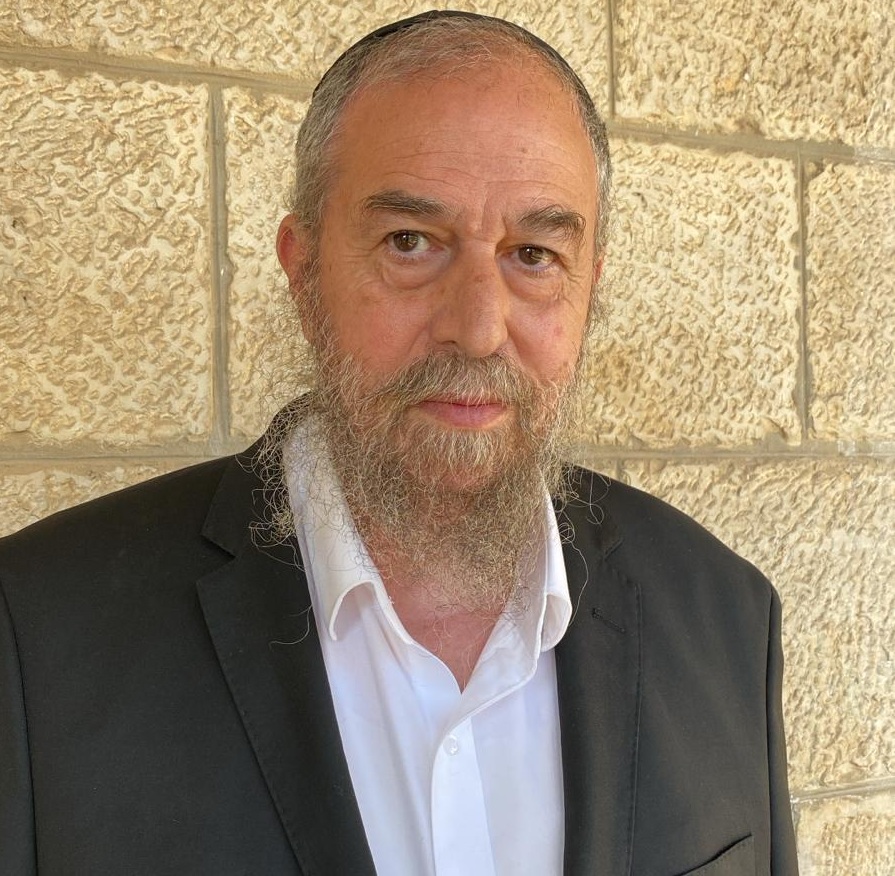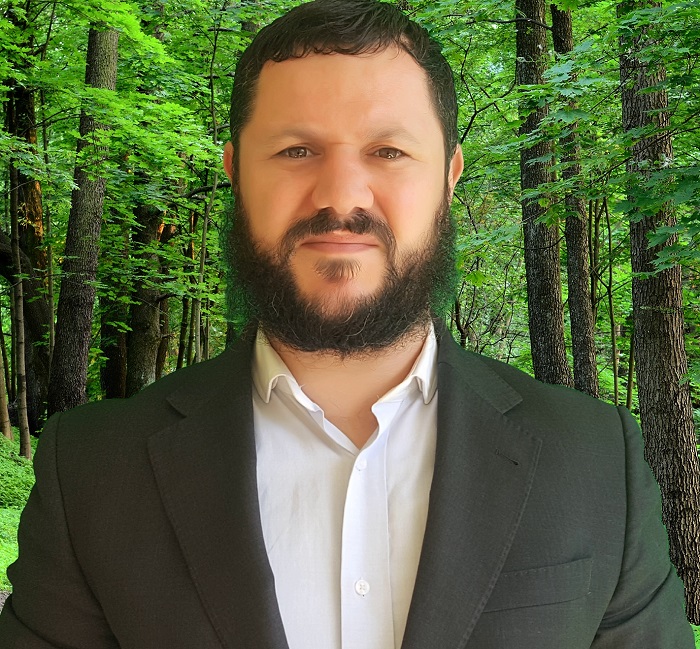
Welcome to the Course
Understand what you will gain and see the syllabus for this course

History of Civilization and Universal Ethics
Enrollment in this course is by invitation only
About this Course
This course explores how the Seven Universal Laws have influenced human civilization—from the earliest biblical narratives to contemporary global movements.
What you will learn
- How the 7 Universal Laws shaped the foundations of civilization across history.
- The role of key figures such as Noah, Abraham, Moses, and later leaders in guiding humanity toward universal ethics.
- The influence of universal ethics on law, philosophy, and culture from antiquity through the modern era.
- How today’s global Noahide movement continues this historical journey.
Who it is for
This course is designed for learners interested in history, ethics, religion, philosophy, and the foundations of law. No prior knowledge is required—only curiosity about how universal values shape civilization.
Course format
12 weeks of study, each including a 1-hour lecture video, PowerPoint slides, suggested readings, discussion prompts, and a short quiz. Final reflection essay at the end of the course.
Week 1 — The First Righteous People in History
Why study history? From the creation of man and woman to the first six commandments. The sin of the fruit, the error of Enosh, Rambam’s account of the rise of idolatry. Abraham and his family as the first Righteous People.
Week 2 — The Way of Noah
Noah’s conduct, the Flood and the seventh commandment. The rainbow covenant. The Tower of Babel and the seventy nations. The Academy of Shem and Eber. Abraham and his descendants. The Divine Presence leaving and being brought back through seven Righteous People.
Week 3 — Moses, Torah and Prophecy for the Righteous
Moses and prophecy according to Rambam. The giving of the Torah. Jonah sent to the people of Nineveh. David defeats Goliath and writes Psalms that also speak to the Righteous.
Week 4 — The Righteous in the First Temple Era
King Solomon’s universal influence. Prophecy during Temple times. Babylonian exile. King Cyrus allows return. Greek empire’s attacks, the Chanukah victory, and renewed devotion to Torah. The fame of the Second Temple inspired many Righteous People worldwide.
Week 5 — Righteous People and Civilizational Challenges
Rise of Rome, Jewish revolt, persecution of Rabbis. Emergence of Christianity mixing Greek myths with universal ethics. Harsh times for G-d-fearers, later followed by Islam. Crusades and expulsions. Byzantium as a refuge. Expulsion from Spain and discovery of America.
Week 6 — From Catholicism and Christianity to Righteous Observance
The Arizal and Kabbalah in the era of the “New World.” Reformation and its opposition. Protestant collaboration with Rabbis. Renewed interest in all Seven Universal Laws.
Week 7 — Righteous People in Europe and America
Counter-Reformation and King Louis XIV. Early modern antisemitism. English Civil War, Cromwell, and the return of Jews to England with universal-ethics influence. Early American colonies and Jewish arrival there.
Week 8 — The Industrial Revolution and the 1800s
The Baal Shem Tov and the Ramchal emphasize concern for all humanity. The French Revolution, emancipation, and Napoleon’s policies. The Alter Rebbe in Jewish Russia.
Week 9 — Aimé Pallière and the Renewal of Noahide Identity
Jewish life in America. The Civil War and abolition of slavery. Individuals who adopted the Seven Universal Laws. Contributions of Samson Raphael Hirsch. Aimé Pallière as a model of righteous observance.
Week 10 — The “Un-Noahide” Century and World Wars
Turmoil in Russia and the rise of Chabad-Lubavitch. Distorted sects. Two world wars shaped by the rejection of universal ethics. America’s growing global role.
Week 11 — The Rebbe of Lubavitch and the Modern Movement
The Rebbe and his predecessors’ leadership for the Righteous. Development of Zionism and the State of Israel. The Rebbe’s initiatives for universal ethics.
Week 12 — The Contemporary Righteous Movement
The growing global community of Righteous People. Overview of historical milestones. Learning from the past to shape the future of universal ethics and civilization.
Certification
Get certified by the Noahide Academy of Israel – International Institute for the Seven Universal Laws.
Grading Policy (100%)
Quiz Questions – 70%
Short self-check questions appear after each lesson to confirm understanding. Together they make up 50% of your final grade.
End-of-Course Project – 30%
Write a concise 1–2 page essay applying what you learned to a current issue in your community or country. Clear, well-reasoned, well-written work scores best. (A strong one-page essay is better than a low-effort two-page essay.)
Passing & Completion
- Passing score: 80% overall.
- Completion requirement (non-graded): watch each lesson video and read the Key Concepts page before attempting the quiz.
Learning Outcomes
How will this course benefit you personally and academically?
- Gain a deep understanding of universal moral principles that apply across cultures and belief systems.
- Sharpen your ability to analyze ethical dilemmas, public policies, and legal frameworks from a values-based perspective.
- Cultivate skills in critical thinking, ethical reasoning, and cross-cultural understanding—competencies highly valued by employers.
How will this give you an edge in your degree and future career?
By grounding your education in universal ethics and moral law, you will:
- Excel in debates, essays, and interviews with a solid grasp of the ethical dimensions of your field.
- Be equipped to lead with integrity in a world seeking principled solutions to global challenges.
- Enhance your résumé and academic profile by demonstrating values-based learning, aligned with initiatives like Education and Sharing Day.
Course Staff

Rabbi Yirmeyhau Bindman
Rabbi Yirmiyahu Bindman is a Jerusalem-based rabbi and educator whose work focuses on the history and contemporary significance of the Noahide Code. He is the author of “The Seven Colors of the Rainbow,” a clear introduction to Torah-based universal ethics. Living in Jerusalem, Rabbi Bindman writes and teaches to help broader audiences understand the foundations and purpose of the Noahide path.

Rabbi Dr. Moshe Perets
Rabbi Dr. Moshe Perets serves as Founder and Executive Director of the Noahide Academy of Israel – International Institute for the Seven Universal Laws. Bridging Torah and science, he earned an MD from the University of Louvain in Brussels and an MS in Biomedical Research from the Hebrew University of Jerusalem, and received Rabbinical Ordination at the Chabad Yeshiva of Brussels in 2011. Before focusing full-time on global education, Rabbi Perets conducted stem-cell research at Hebrew University and led humanitarian missions in Africa, guided by a commitment to the physical and spiritual wellbeing of all people. Living in Jerusalem with his wife and children, he teaches the Noahide Code and coordinates the development of Noahide communities across the world in five languages. His work emphasizes rigorous scholarship, practical ethics, and community leadership, equipping students and ambassadors to apply universal moral principles in contemporary life.
Frequently Asked Questions
Which web browser should I use?
For the best experience, use the latest version of Chrome, Firefox, or Safari. Microsoft Edge is also supported. Internet Explorer is not recommended.
How long do I have access to the course?
You have access for the entire duration of the course, plus any additional time set by the instructor. Check your course dashboard for dates.
Do I need prior knowledge?
No background in law or philosophy is required. The course is designed for first-year university students and anyone curious about universal ethics.
Will I get a certificate?
Yes. Students who complete all assignments, quizzes, and the final project will receive a certificate of completion.
How much time should I expect to spend each week?
Plan for about 2–3 hours per week, which includes watching video lectures, reviewing key concepts, and completing quizzes.
What should I do if I have technical issues?
Use the “Help” button in the course navigation or visit the edX Help Center for troubleshooting.
What will I gain practically from this course?
- A clear understanding of the histtory of civilization according to the Noahide Laws as a universal code of ethics.
- Skills to analyze real-world issues (law, politics, education, society) through the lens of universal ethics.
- Critical thinking tools for discussions on justice, human dignity, and global responsibility.
- A final project that connects course concepts directly to contemporary problems.
- Academic Credits: Recognized in Israel, with future recognition under review by the NCCRS (National College Credit Recommendation Service) in the US.
- Internship Opportunities: Possible placements in Israel and other countries through our international network of partners.
